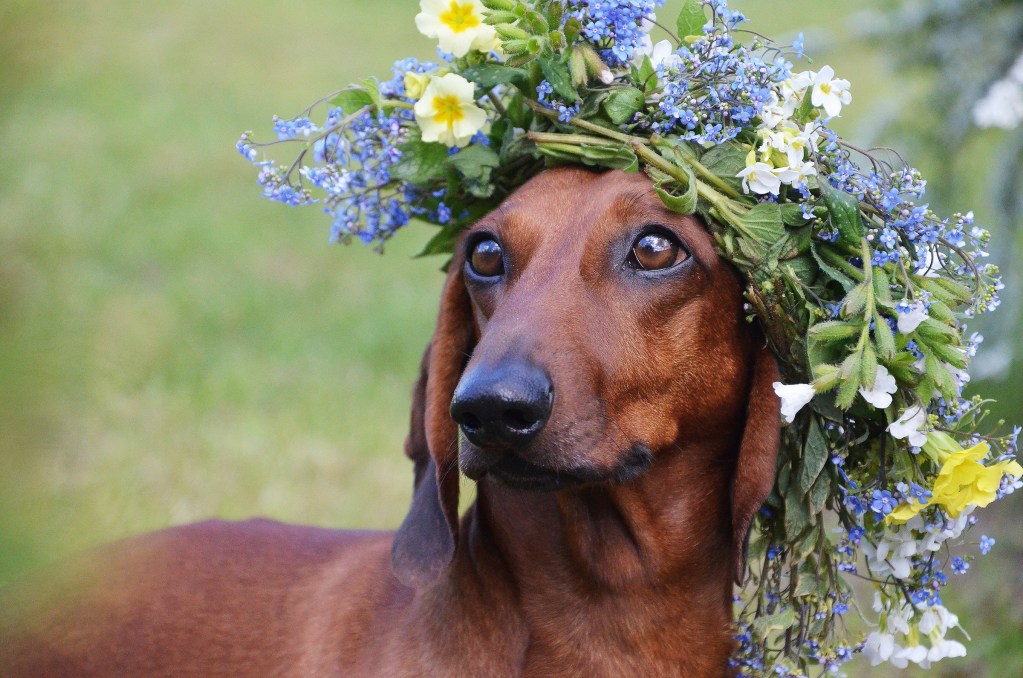
If you’ve spent enough time around dog people, you’ve probably heard it said that the smaller the dog, the longer the lifespan. While this idea does have some scientific basis to it, it’s not everything. Some breeds decided to throw us a curveball in regards to the dog’s life expectancy and geriatric needs, while others are totally predictable. And some of it comes down to the individual, including their lifestyle factors. How long do dachshunds live? Do any other breeds live as long? Keep on reading these helpful pointers to find out.

How long do dachshunds live?
According to the American Kennel Club — one of the leading expert sources on canine life — standard dachshunds have a life expectancy of 12 to 16 years on average. Though their miniature-sized brothers and sisters are smaller (this can sometimes be an indicator of a longer lifespan) their average life expectancy is not different from that of standard dachshunds.
Here’s the good news: the wiener dog’s life expectancy is already longer than most dogs! While large dogs live an average of 8 to 12 years, Doxies and other smaller dogs can stay with us for many more, with Chihuahuas often making it to their late teens.

What is considered old for a dachshund?

Can a dachshund live for 20 years?
With the right diet and exercise routine, a small dog like the dachshund absolutely can live to be 20 years old. In fact, more than one of the world’s oldest dogs on record had Doxie blood in them, and they were all over 20. Most recently, a miniature dachshund named Funny spent his final days with the title of “Oldest Living Dog” which he received in November 2020. At the time, he was 21 years and 169 days old (via Guinness World Records).
To make sure your hot dog stays as happy and healthy as can be, you’ll want to keep an eye on his physical condition, especially his weight. The dachshund’s long body shape makes carrying extra pounds even harder on them than on the average dogs, but in truth, there are so many reasons to keep your dog trim. Breeds like this are also prone to spinal issues such as Intervertebral Disc Disease, which can be exacerbated by extra weight (via British Veterinary Association). This, by far, is the biggest health issue facing dachshunds, especially as they age.

What is the oldest dachshund to live?
As far as we know, Funny the miniature dachshund is the oldest of this breed to be recognized by the Guinness Book of World Records. This sweet boy may not be the most elderly dachshund ever, though. California’s Mountain Democrat interviewed Robert Rowland and his four-legged friend Rocky back in 2011 when Rocky was a staggering 24 years old. Rowland believed his buddy’s longevity was a result of their active lifestyle together. Even though Rocky was eventually put down due to his low quality of life from mobility impairment, he had zero chronic health concerns like heart disease or liver failure.

What is the most common cause of death for dachshunds?
Although spinal abnormalities are the most common health concern for dachshunds, heart disease is their leading cause of death. Leaky heart valves tend to be the most common root of this problem, especially if not caught early on. When a valve becomes weak and deformed, it allows blood to seep out and gather around the valve. If this results in too much pressure, it can strain the heart and cause a murmur or other physical defect. This issue certainly isn’t exclusive to dachshunds but does occur frequently in the breed.
Just because dachshunds are at risk for heart problems doesn’t mean they aren’t at risk for other health concerns, too, so make sure to keep up with your dog’s regular vet visits. Your dog doc can help reassure you that everything is exactly as it should be, so you can get back to having fun with your fur baby as soon as possible. The vast majority of dachshunds seem like such happy dogs—how could you not have fun!



